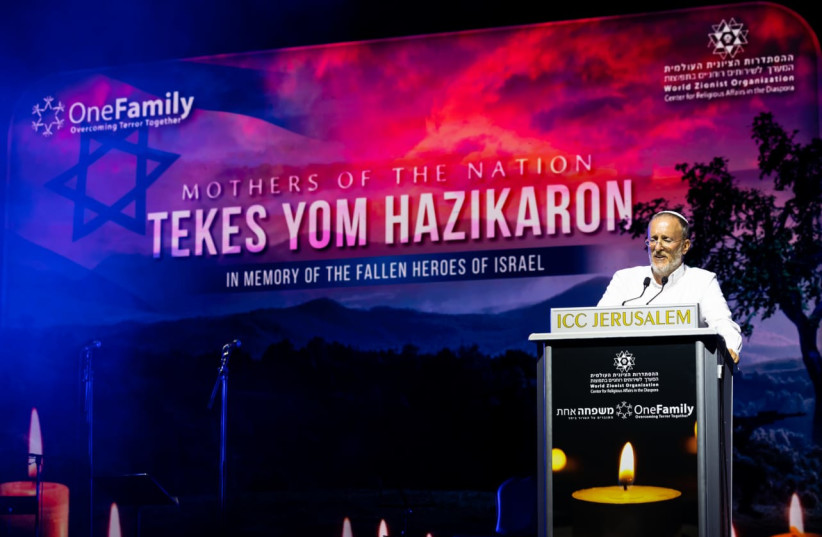The government is expected to approve on Sunday, during its weekly meeting, a proposal to set a national memorial day for the October 7 massacre.
According to the proposition, every year on the 24th of Tishrei (the first month of the Hebrew calendar) there would be a national Memorial Day to remember the horrors of October 7 and honor those who fell.
During the suggested Memorial Day, there will be ceremonies in all institutions, including the army, and a state ceremony to memorialize the soldiers who died during Operation Iron Swords. According to the decision, this year, the Array for Ceremonies and State Events (ACSE) will hold a state ceremony on October 7.
It was written in the proposal that "October 7 is etched into the public consciousness as the day of a horrible massacre." The proposal then explains that in answer to public feelings in Israel, there needs to be a one-time ceremony on October 7.

It also draws a phonetic parallel between the date and the Jewish custom for mourning: “The saying ‘shiva beOctober’ has multiple meanings and has a connection to the Jewish term ‘Shiva,’ which marks the mourning at the end of the first year of mourning for the war.”
Israeli Remembrance Days
In Israel, there are currently only two national remembrance days. The first commemorates the approximately six million Jews who were systematically murdered by the Nazi regime as well as the courage of Jews who fought in revolts against the Nazis, and the second Remembrance Day is in honor of all Israeli military personnel who lost their lives in the struggle which led to the founding of the State of Israel, as well as those who were killed since during active duty, and those who have been killed in terrorist attacks.
In Israel, Holocaust Remembrance Day is colloquially known as “Yom HaShoah” and is held on the 27th of Nisan (the eighth month in the Hebrew calendar, normally in April or May.) This date was chosen because it is the date on which the Jewish rebellion in the Warsaw ghetto began.
Yom HaShoah first occurred in Israel in 1949 and was linked to a traditional Jewish day of mourning and fasting. In 1951, the Knesset discussed a new date for Memorial Day, and eventually settled on the 27th of Nisan in the Hebrew calendar, a week after Passover, and about a week before Israeli Independence Day.
The second Remembrance Day in Israel is called “Yom HaZikaron” which directly translates to “Remembrance Day.” It was decided that it should take place the day before Israeli Independence Day, so Israel would not forget the sacrifices that the fallen took so the rest would be safe in their own country.
This day was enacted into law in 1963, and in 2023 the Diaspora Affairs and Combating Antisemitism Ministry added a new policy, according to which non-Israeli diaspora Jewish victims of antisemitic terror attacks are also included in Remembrance Day ceremonies.
